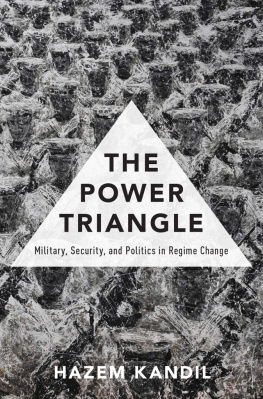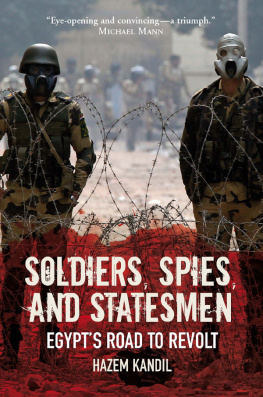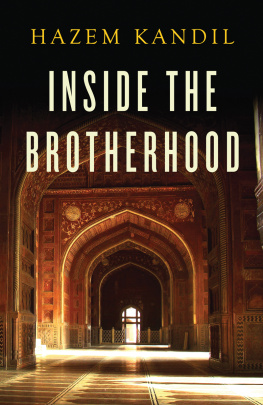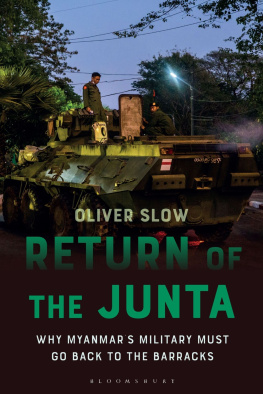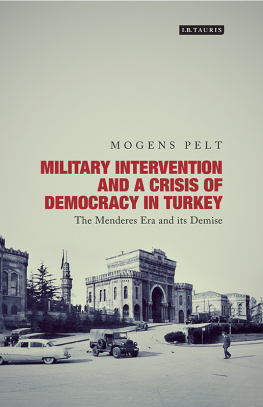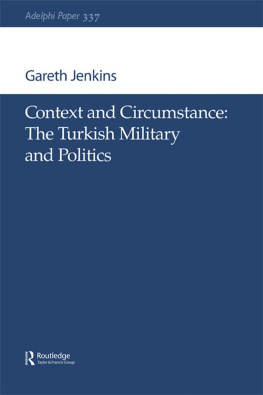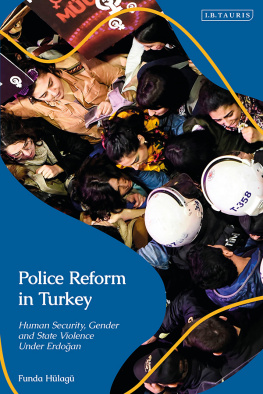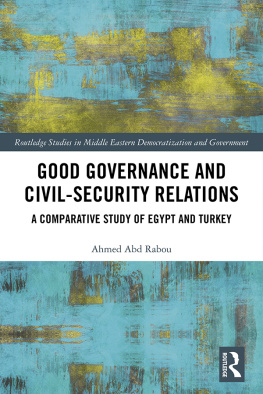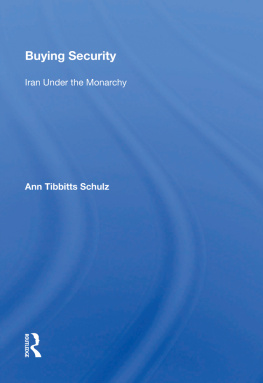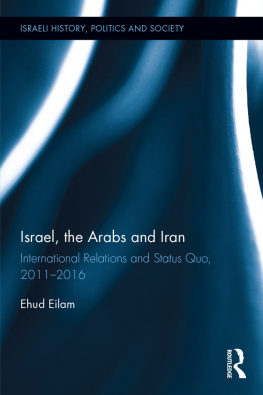The Power Triangle

Oxford University Press is a department of the University of Oxford. It furthers the Universitys objective of excellence in research, scholarship, and education by publishing worldwide. Oxford is a registered trade mark of Oxford University Press in the UK and certain other countries.
Published in the United States of America by Oxford University Press
198 Madison Avenue, New York, NY 10016, United States of America.
Oxford University Press 2016
All rights reserved. No part of this publication may be reproduced, stored in a retrieval system, or transmitted, in any form or by any means, without the prior permission in writing of Oxford University Press, or as expressly permitted by law, by license, or under terms agreed with the appropriate reproduction rights organization. Inquiries concerning reproduction outside the scope of the above should be sent to the Rights Department, Oxford University Press, at the address above.
You must not circulate this work in any other form and you must impose this same condition on any acquirer.
Library of Congress Cataloging-in-Publication Data
Names: Kandil, Hazem, author.
Title: The power triangle : military, security, and politics in regime change / Hazem Kandil.
Description: New York, NY : Oxford University Press, 2016. | Includes bibliographical references and index.
Identifiers: LCCN 2015047834 | ISBN 9780190239206 (hardcover : alk. paper) | eISBN 9780190239220
Subjects: LCSH: Regime change. | Regime changeEgypt. | Regime changeIran. | Regime changeTurkey. | Civil-military relationsEgypt. | Civil-military relationsIran. | Civil-military relationsTurkey. | EgyptPolitics and government21st century. | IranPolitics and government21st century. | TurkeyPolitics and government21st century.
Classification: LCC JC489 .K36 2016 | DDC 321.09dc23
LC record available at http://lccn.loc.gov/2015047834
To Naheed
I dont write about victims so much as I write about the people who have power, who exert the power, and who use the power against other people.
Gore Vidal, The United States of Amnesia, 2013
CONTENTS
In power struggles, there are no lasting victoriesonly the ceaseless clash of wills. This is why regimes constantly change. Sudden, dramatic, popularly forced changes impress themselves upon us as revolutions. Less spectacular ones, brought forth by pressure and compromise, are the much less memorable reforms. Frustratingly slow rearrangements of power at the top, with limited reverberations below, are symptoms of resilience. The important thing is: regimes, defined simply as how society is ruled, are never entirely stagnant. And revolution, reform, and resilience are essentially different labels describing the same phenomenon, that is, regime change.
Yet studies of regime change have been long divided into three separate fields, depending on the speed and extent of change: revolution theory, mostly developed by sociologists; transition theory, a preferred niche for reform-minded political scientists; and the residual and exotic phenomenon of authoritarian resilience, commonly relegated to area specialists. To end this clearly unhelpful division, one must examine how regimes operate over decades, rather than just parachute onto the most exciting episodes. To quote Cambridge historian Herbert Butterfield: History is not the study of origins; rather it is the analysis of all the mediations by which the past was turned into our present ([1931] 1965: 3). Only long-term studies can capture revolution, reform, and resilience through a single lens.
This book presents one such attempt. It starts with a historical puzzle. In the first half of the twentieth century, officers in Iran, Turkey, and Egypt decided to pull their once great nations up by the bootstraps and shepherd them back to the path of progress. These revolutions from above were all conceived in the name of modern state building, and occurred in comparable settings only a few years apart. But despite similarities, they met different fortunes: Iran became an absolutist monarchy that was overthrown by revolution; Turkey evolved into a limited democracy through successive reforms; and Egypt metamorphosed into a resilient police state. How can we account for this divergence? While most studies of regime change highlight popular forces, I focus instead on the ruling bloc. My central claim is that these different trajectories were determined by the power struggle between the military, security, and political institutionswhat I refer to as the power triangle. I conclude that it was political hegemony over the agents of coercion in Iran that produced a toothless monarchy vulnerable to overthrow; that the aversion of Turkeys military guardians to direct governance left a relatively autonomous space for democratic politics to develop; and that the growing security dominance in Egypt produced an exceptionally intransigent police state.
The assumption here, of course, is that the military, security, and political institutions have separate agendas, based on their varying (albeit overlapping) interests. Though partners in domination, and generally invested in regime stability, the three institutions inevitably compete over regime control in order to impose their own priorities. And it is through their conflict and collaboration that power continuously shifts within the ruling bloc, and with it the overall character of the regime. Analyzing regime change should therefore begin by demystifying relations within this triangular ruling complex. Other variables, whether class, ideology, or geopolitics, should be accounted for through their impact on these ruling institutions.
That being said, my appreciation of the impact of power struggles at the top does not contradict Pierre Bourdieus assertion that there is no single, final, or even correct explanation of anything, only more complete, developed, adequate explanations (: 356). I therefore see my effort as complementary. My aim is to enhance the literature on regime change, not question the multiplicity of approaches needed to grasp this intricate phenomenon. Indeed, Jack Goldstone once compared the scholarly endeavor to exploring a large plot of land, where only by mapping the various parts could we begin to imagine the whole (2003: 43). And it is the fact that so much ground has been covered with regards to class politics, ideological conflicts, and geopolitics, that drove me toward the relatively neglected area of institutional tensions within the state.
Let me end with a note on the books structure. The preface is followed by a somehow lengthy exposition of the theoretical underpinnings of the power triangle model, and a justification of my methodological choices. And at the very end of the book, another long section reviews the literature on civilmilitary relations, and shows how comparing the Iranian, Turkish, and Egyptian cases hopes to contribute to it. Readers uninterested in theory, method, or academic squabbles could skip the introduction and conclusion and delve into the historical analysis that forms the core of this study. Theory and history were kept separate for the benefit of nonacademic readers, though they were certainly entwined in my mind during the research itself. Likewise, the historical chapters were divided by cases rather than themes not because I studied each country separatelyfew comparativists could, even if they triedbut because the density of intraregime conflicts, and the plethora of names and dates that come with it, would render interweaved narratives too confusing.

